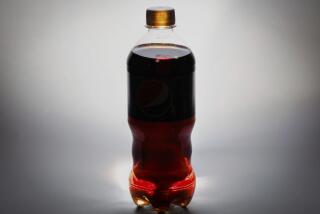Study cools a fear for now
- Share via
Swedish researchers ignited an international furor when they reported in April that frying or baking starchy foods, such as French fries and potato chips, creates a cancer-causing chemical.
Now, however, a new study has found that people who eat a lot of foods rich in the compound acrylamide have no increased risk of developing bladder, kidney or colorectal cancer.
Researchers at Harvard’s School of Public Health in Boston and the Karolinska Institute in Stockholm analyzed the diets of 987 Swedish cancer patients and 538 healthy Swedes over five years. They asked participants about their consumption of 188 foods containing lots of acrylamide, including potato chips, French fries, crusty breads, cookies and breakfast cereals. They found that individuals who consumed moderate to high amounts of acrylamide were no likelier to develop any of the three cancers than those who consumed little to none.
“The data are probably suggesting that the amount of acrylamide you’re taking in through the diet is not enough to cause an excess risk of cancer ... and probably that our bodies are able to detoxify those levels,” said Lorelei Mucci, a Harvard epidemiology researcher and lead author of the study appearing in the Jan. 28 issue of the British Journal of Cancer. “This hopefully gives people some feeling that maybe there’s not so much to be worried about.”
Acrylamide, an odorless, white compound also used in the manufacture of chemicals, dyes and plastics, causes cancer in laboratory rats and nerve damage in people. But until now, scientists couldn’t say whether acrylamide in foods causes cancer in people.
Mucci said the results shouldn’t be seen as an excuse for gorging on potato chips and French fries, high-fat, high-calorie foods that can contribute to a higher risk of heart disease and obesity.
She cautioned that the study’s findings are preliminary and that more research is needed to rule out acrylamide as a possible risk in other forms of the disease, such as cancer of the breast or ovaries.
Meanwhile, the World Health Organization and United Nations Food and Agriculture Organization, which call acrylamide a “major concern,” have advised consumers to cook food thoroughly, but not for too long or at excessively high temperatures.
Because many foods are prepared at more than 250 degrees, the threshold at which acrylamide forms, some food makers are looking at frying some of their products in oils that work well at lower temperatures.
The Food and Drug Administration, which has measured acrylamide levels in hundreds of foods, has found that levels can vary greatly depending on how a particular food is cooked. For example, 39 samples of potato chips had levels ranging from less than 1.4 micrograms to 100 micrograms in an ounce.
Scientists studying acrylamide formation have discovered that it can be produced when glucose (a sugar) reacts chemically with asparagine (an amino acid).
Of course, if you want to play it safe until more is known, you can always stick to fresh and boiled foods, which are acrylamide-free.




